'Looking at the top level, there's not really any change': Why cycling still has a diversity problem
In 2020, diversity in cycling became a topic of debate, as many expressed a desire for change. But has that progress now stalled?

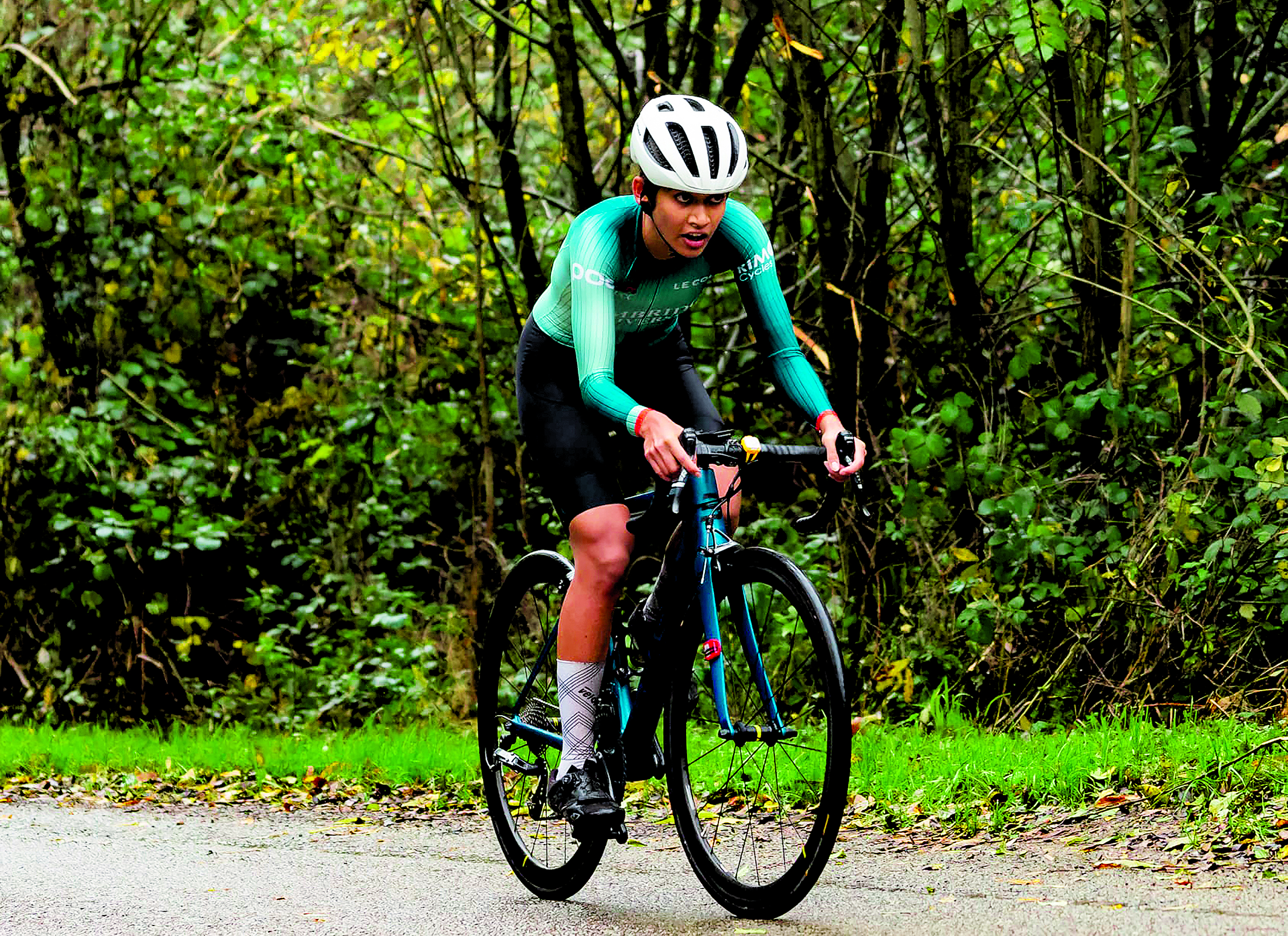
Of the 148 British-registered riders racing for UCI teams in 2025, just one is from an ethnic minority. Sannah Zaman, who is of Pakistani heritage, rides for women's UCI Continental team CJ O'Shea. She is - as far as Cycling Weekly can confirm - just the second British-registered rider of colour in the modern era to race for a UCI team. The first was Germain Burton, son of legendary cyclist Maurice Burton, who competed for JLT-Condor in 2018.
Road cycling in the UK lags far behind its elite sporting cousins in terms of representing the country's ethnic diversity. At the Paris Olympic Games last year, 37% (25 of 67) of Great Britain and Northern Ireland's athletics squad were non-white. Compare that to cycling, where, across all disciplines, the GB team included just one person of colour in a squad of 36 riders (3%). In the country at large, around 18% - nearly one-fifth of the population is non-white.
The numbers tell the story, and you can see it for yourself at every road race up and down the country: elite competitive road cycling in the UK, from national level all the way to the World Tour, is excluding, or at least deterring, people who don't have white skin.
Twenty-one-year-old Zaman began her cycling journey at a young age, joining a club in Kent while at primary school and progressing into road racing. "When I was really young I'd say my club was pretty diverse," Zaman recalls. "As soon as I started racing, the diversity seemed to drop off".
In 2020, ethnic diversity became a prominent topic after the killing of George Floyd at the hands of a policeman in Minneapolis, Minnesota. Globally, awareness rose about the subjugation of ethnic minorities and their lack of representation in certain spheres of society and business. Diversity in cycling became the subject of debate, and fans, riders, teams and authorities expressed a desire for change.
Tao Geoghegan Hart took action. He wanted to create opportunities for riders of colour, and in 2021 sponsored British-Grenadian rider Red Walters to race as a stagiaire with successful development squad Hagens Berman-Axeon. The 26-year-old competes under a Grenadian licence and is a three-time national champion, though he grew up in the south of England and spent his early career racing the British domestic circuit. In his view, the drive for diversity has waned since 2020.
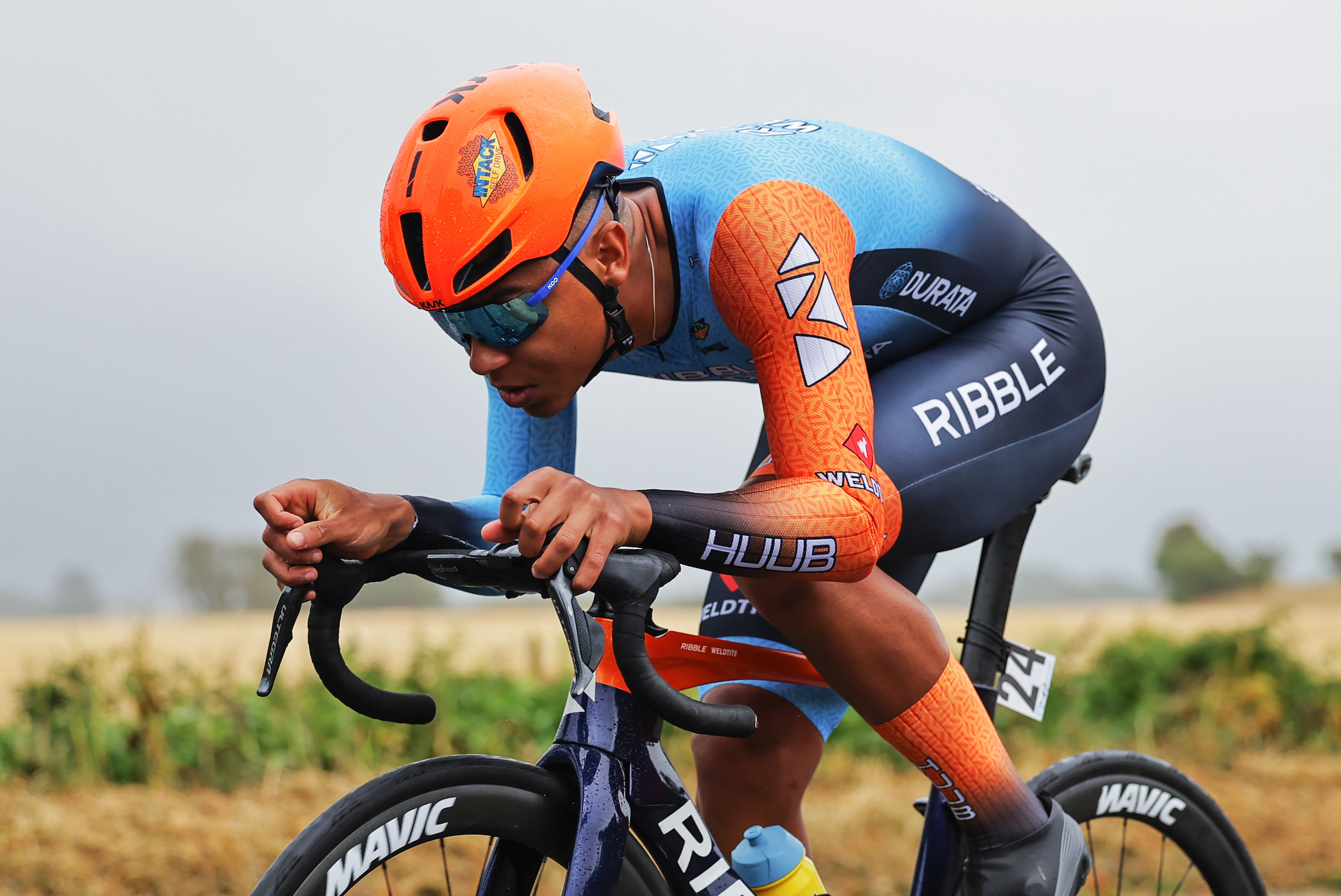
Red Walters is one of the few black pros to come out of the UK in recent years
"The momentum behind it was powerful, really powerful," says Walters, who now rides for Portuguese amateur team Obidos, "but you don't really hear many people talking about it anymore". "Looking at the top level, there is not really any change that I can see".
The latest race content, interviews, features, reviews and expert buying guides, direct to your inbox!
How conscious is he of the lack of diversity at races? "I guess I try not to think about the whole diversity aspect," he responds. "It would always come in waves. Every now and then I'd be at a race and notice there was no one of any other ethnic background". UK bike racing in a predominantly white environment, where the rare rider of colour cannot help but feel that he or she stands out from the crowd.
Some do their best to avoid the issue as a potentially negative distraction from competitive priorities. "If you want [success], you've got to just kind of deal with it," explains Deetray Jarrett, a 19-year-old rider who grew up racing in Blackpool alongside his younger brother, Trayden, and now competes at top amateur level in Spain.
"We'd go [to local races], and all eyes would be on us. We're the only Black family racing in our region. If one of us won, someone would say 'Oh, there's that Black kid". It was even more noticeable when they were starting out: Jarrett recalls he and his brother receiving "dirty looks" that seemed to question their presence.
He believes things would have been easier for him and his family if the racing scene had been more diverse. "We wouldn't have been the odd ones out," he says. "We'd have felt we were fitting in a little bit better".
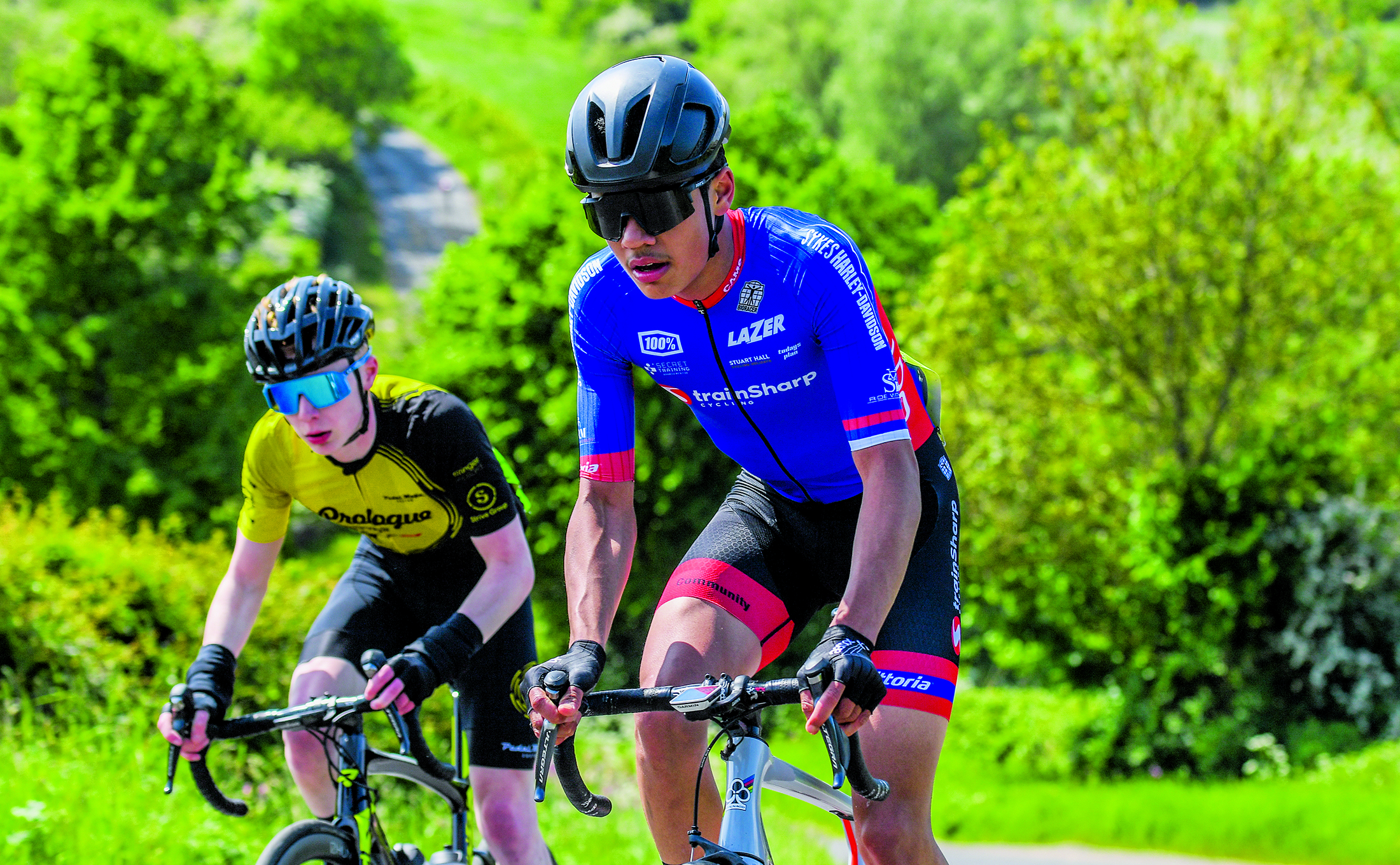
Deetray Jarrett is used to getting noticed, but not always for the right reasons
It's no secret that road cycling is an expensive sport. Affordability is a universal issue, whatever the ethnicity of the rider. However, the cost to compete disproportionately impacts people of non-white ethnicities in the UK, who are statistically more likely to be from lower-income households.
Richard Liston is head coach at Islington Cycling Club, one of the largest competitive clubs in London, situated at the heart of one the most multi-ethnic communities in the country. "There are very few people from ethnic minorities coming through," Liston says.
"The obvious talent exists, but you always hear the same stories - astonishment at how much a bike costs. Parents say, 'I just can't afford that'. That's the fundamental problem that we see all the time: the barrier to entry is expense, more than anything else". Zaman agrees and acknowledges that her "pretty privileged background" removed those obstacles to entering the sport.
"We can't be it if we can't see it"
Richard Liston
When Liston started coaching cycling, he was one of only a few Black coaches in the country. He says that the lack of diverse representation at the top level of British and international racing is dissuading riders of colour from competing.
"We can't be it if we can't see it," Liston says, quoting American civil rights activist Marian Wright Edelman. "You need visual reference points," he continues. "Without that kind of profile or pointer, that kid with that enormous talent will not go anywhere". Walters recounts how Biniam Girmay and the Legion of Los Angeles team led by Justin Williams inspired him as he progressed through the sport.
These high-achieving riders proved to Walters that cycling is not an inherently or unchangeably "white sport". Now, he receives messages from riders of colour who have been influenced by him, but inspirational figureheads are few and far between in the UK
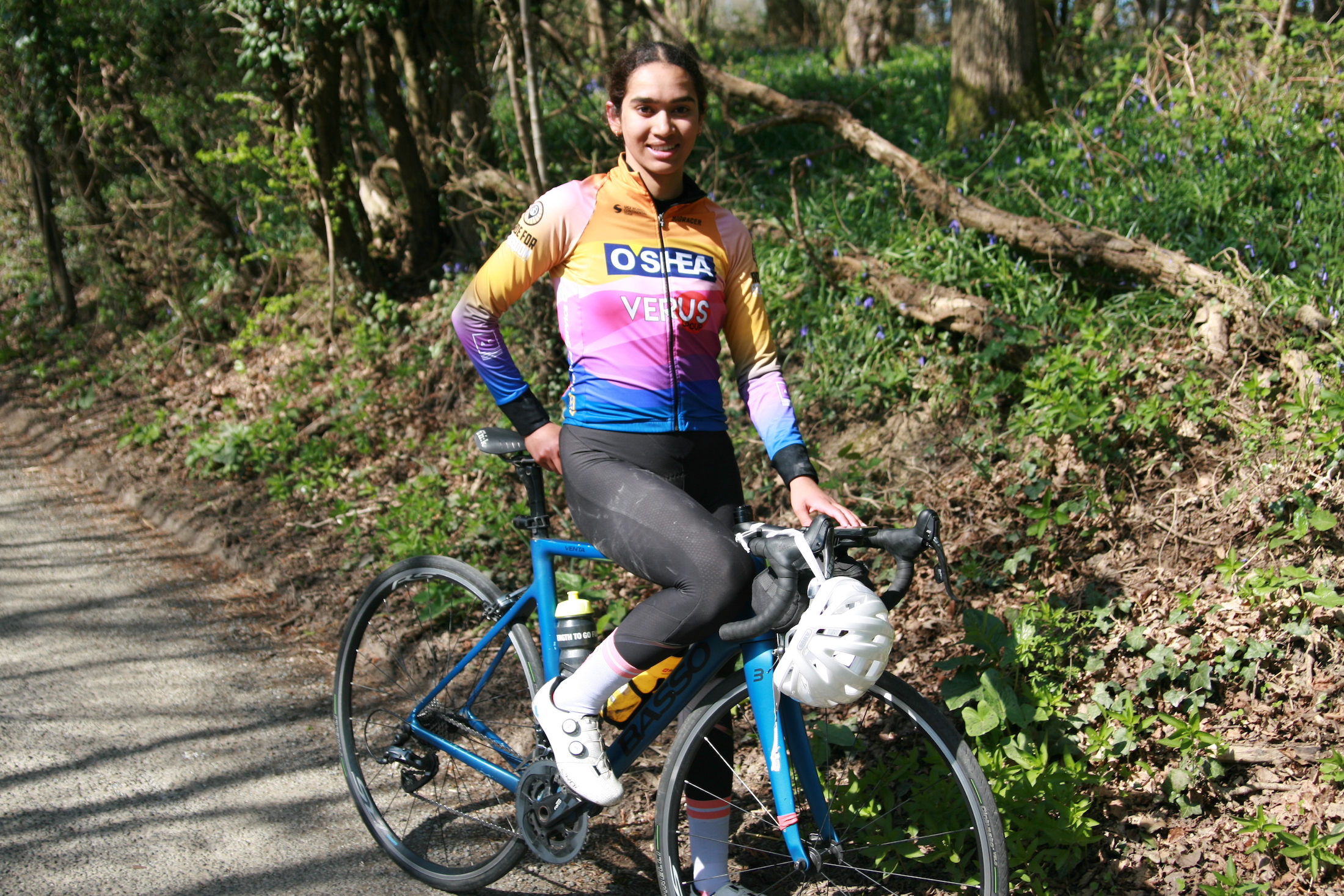
Sannah Zaman has so far combined pro level racing with her studies
Diversity has increased among UK cyclists riding just for fun, but few convert their passion for the bike into competition. It may be that competitive cycling's lack of diversity goes deeper than economics or lack of role models, and is rooted in attitudes, beliefs and culture prevalent within the cycling community in the UK.
Andy Edwards is the author of the Diversity in Cycling report, which explores the experiences of riders from underrepresented backgrounds in cycling in the UK, and suggests ways to widen inclusivity. He believes that cycling in the UK has an "elitism" problem, which consciously and subconsciously deters people of diverse backgrounds from getting involved in clubs and competing.
In Edwards's 2022 report, cycling is described as the "new golf", presenting itself as the preserve of certain kinds of people, wearing certain garments and riding certain bikes. "I found a lack of awareness, and microaggressions, such as 'Lycra bros' staring demeaningly at a Muslim guy for wearing baggy shorts over his Lycra," Edwards says.
THE DIVERSITY CHALLENGE IN NUMBERS
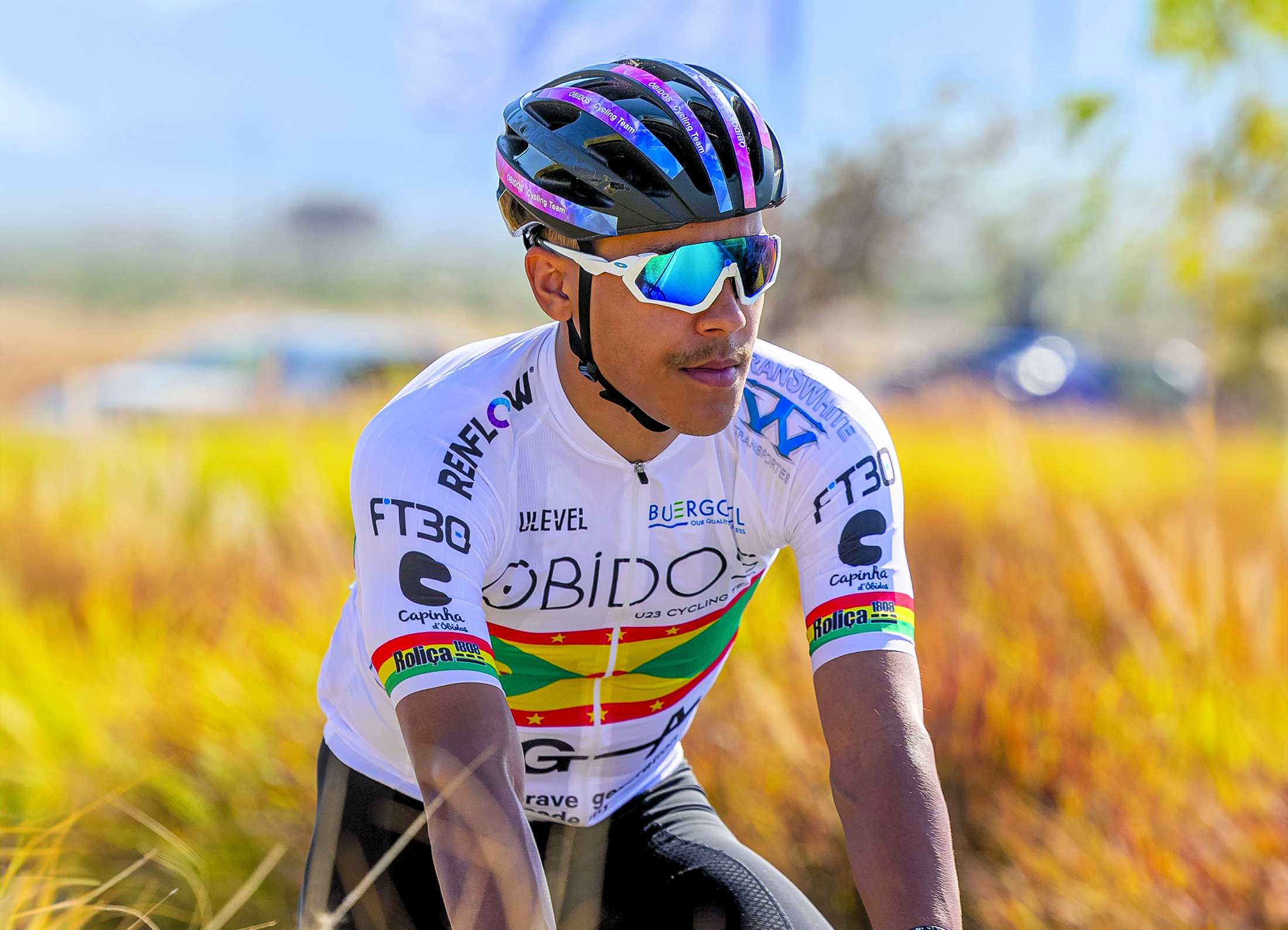
18% - Percentage of UK population who are non-white
2.8% - Percentage of 2024 GB Olympic cycling team who were non-white - just one of 36
0.7% - Percentage of current British UCI racers who are non-white - just one of 148 2 - Number of non-white British UCI cyclists in modern era
15% - Percentage of riders from ethnic minorities engaging with the British Cycling Talent Pathway (up from 6% in 2021)
67% - Percentage of young riders at BC City Academy sessions from ethnically diverse communities (in 2023/24)
Liston believes it is elitism, rather than racism, that is making people from ethnic minority backgrounds feel as though the sport is not for them. He has witnessed several examples of such riders feeling unable to integrate into clubs and competition. "It can be very male, very white, very middle-class," he explains.
"A lot of people feel outside the loop, fearing they will always be in a minority of one, in a typical club. If they don't feel comfortable, they don't want to join the club scene". Walters agrees, and says that this sense of a monolithic culture subtly permeates the elite racing scene too.
"You start with what's predominantly white anyway and then you've got whatever inherent biases might exist. It just stacks up and up to the point where it becomes less inclusive"
"We recognise that the peloton, at elite level, does not represent society," says Jon Dutton, CEO of British Cycling. "We want cycling across Great Britain to represent society, and it is clear in some areas that is not the case". In March, British Cycling launched a brand new strategy and put accessibility and inclusivity at the centre of their plans.
On the sporting side, the ambition is that the UK race scene and British Cycling squads would reflect the demography of the country by the time of the Brisbane Olympic Games in 2032. "We want LA to be a step in the right direction, but certainly by Brisbane, we want the people who represent the Great Britain Cycling Team, the people standing on the podium, to be truly representative of society," Dutton says. "The results won't come tomorrow, so this isn't overnight. We acknowledge the size of the challenge".
"We as an organisation can't just sit here and wait for everyone to come to us, we need to go to communities and that has been the start of it - this is a key priority for us,"
John Dutton. British Cycling CEO
Working towards this goal, British Cycling launched the City Academies initiative in 2021. Their plan is to create opportunities for under-represented communities to participate in coaching sessions, growing skills and providing a pathway to competition.
Since launching, the number of riders from ethnic minorities who have been part of British Cycling Performance Pathway coaching sessions has increased from 6% to 15%, although it's unclear how many have progressed further.
"We as an organisation can't just sit here and wait for everyone to come to us, we need to go to communities and that has been the start of it - this is a key priority for us," Dutton says.
Although the statistics are positive, Liston is sceptical of the City Academies. He doesn't think enough effort is being made to address the economic barrier, and describes the initiative as "tick-box exercise". "There isn't a clear pathway to get somebody from a City [Academy] Hub onto a race bike," he says, pointing to the initiative's failure to address the problem of affordability.
Responding to this criticism, Dutton says: "I completely disagree that it is a tick-box exercise," referring to a partnership with Trek that has provided 500 bikes for less privileged communities. Dutton describes the City Academies as "relatively embryonic" and explains that it will take time and patience to see the initiative bear fruit.
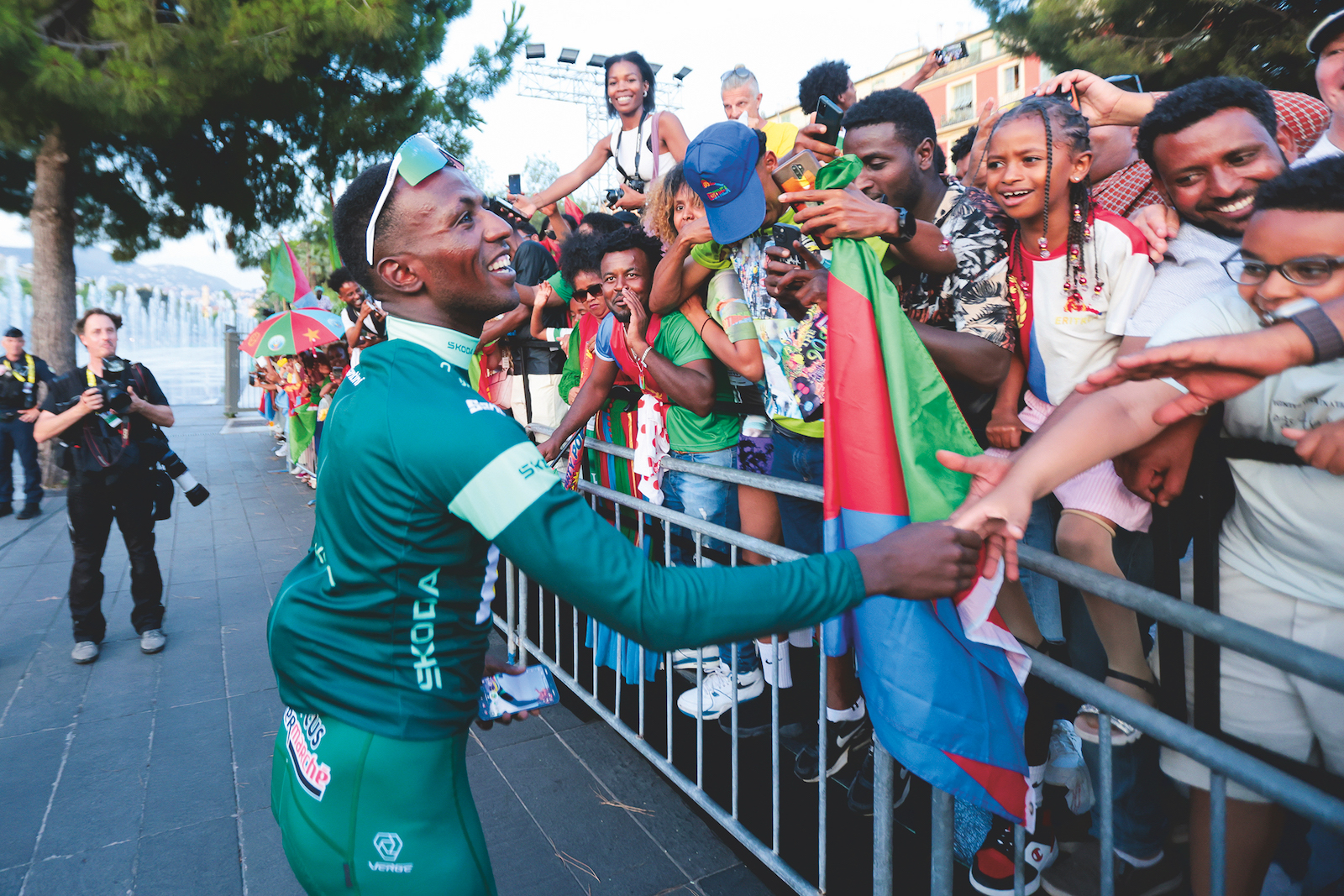
Solutions addressing the issues of affordability, representation and attitude that drive UK cycling's diversity problem need to be found at all levels, from national governance, to local clubs and fans.
Edwards is encouraged by changes he has witnessed since publishing his report. "I see more clubs consciously promoting inclusive values, more cycling brands including models from diverse backgrounds in their promotion," he says, "and the media telling more diverse stories.
A key driver for change at grassroots level is the emergence of new clubs and groups that have an inclusive ethos".
Walters too would like to see clubs be more inclusive, something he feels everyone can play a part in. "Just be extra welcoming - engage with people and be friendly. I think that goes a long way". He urges teams to provide opportunities to riders from different ethnicities.
"When people are given the opportunities to race at a higher level, that's what helps them progress". Role models racers like Jarrett, Walters and Zaman are helping to inspire a new, more diverse generation. "I want to be a cyclist and win a Tour stage," says Jarrett. "That's my goal, and I believe I will get there in a few years.
Then I want to inspire people from different ethnicities in the UK". Dan Challis specialises in cycling stories from beyond Europe - Global Peloton on Substack.
Dan Challis is a freelance journalist based in the Scottish Borders. As well as writing for Cycling Weekly and CyclingNews, Dan also writes a weekly newsletter called Global Peloton.
You must confirm your public display name before commenting
Please logout and then login again, you will then be prompted to enter your display name.
